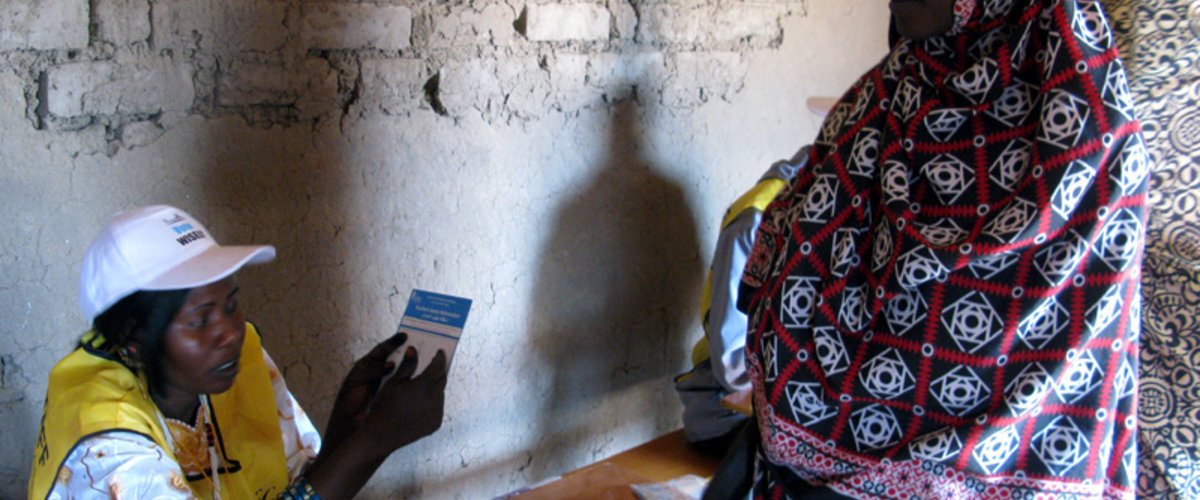10 January 2011 – On the second day of polling in the Southern Sudan self-determination referendum, the national commission organizing it announced that one fifth of voters registered in Southern Sudan had voted yesterday, and also extended polling hours.
Speaking at a press briefing in Khartoum today, Southern Sudan Referendum Commission (SSRC) member Paulino Wanawilla said that about 20 per cent of the 3.755 million voters registered in the south had cast their ballots yesterday, and 14 per cent of those registered had voted in the country's north.
The commissioner also announced that voters needed more time to reach polling centres after finishing work, based on yesterday's observations in and around Khartoum. Hence, the SSRC had extended daily polling hours.
Polling centres will be open from 8 a.m. to 6 p.m. in North Sudan and from 9 a.m. to 7 p.m. in Darfur, the commissioner said. "At 8 a.m., it is still dark in Darfur," he said, explaining the later hours for polling centres in the western province of Sudan.
The commission will declare preliminary results by 2 February and, if there are no appeals, final results by 7 February. In the case of appeals, final results will be released by 14 February.
Meanwhile, voting in the referendum continued in Khartoum and its surrounds, although with a lower voter turnout than in the south.
At a polling centre about 40 kilometres from the city in the area of Jebel Awlia, which is largely populated by Southern Sudanese, 423 people had registered and 98 had voted yesterday, according to polling staff Hakim Gabriel.
Wearing a purple veil covering her hair and a brownish thob (traditional Sudanese garment for women), voter Carlene Angelo said she had come to Khartoum from the Bahr El-Ghazal town of Wau 15 years ago.
She was casting her ballot to exercise her right, Ms. Angelo said, adding that no matter what the outcome, she intended to stay in the north, as her children were also living here.
In the Abuja area of Jebel Awlia, where 1,035 voters had registered and 189 had voted on 9 January, voter Charles Wani expressed different sentiments.
Mr. Wani had fled to Khartoum from war in Juba 23 years ago and was planning to move back to the south next week.
Except for two of his children attending university in the northern capital, his family had already returned to the southern capital last year.
Twenty-five-year-old Helen Thomas, a second year law student at Khartoum's Nile University, has been living in the north for 20 years.
After finishing her studies, she would also move to Juba, where her family was from, Ms. Thomas said.
"I am happy to see the referendum happen," she said, "because it gives us a chance to establish a new southern Sudanese state neighbouring the old Sudan."
The threshold for the referendum to be legal and binding was 2,359,533 votes, or 60 per cent of 3.932 million, the total number of registered voters, the SSRC announced today.
 UN
UN United Nations Peacekeeping
United Nations Peacekeeping





